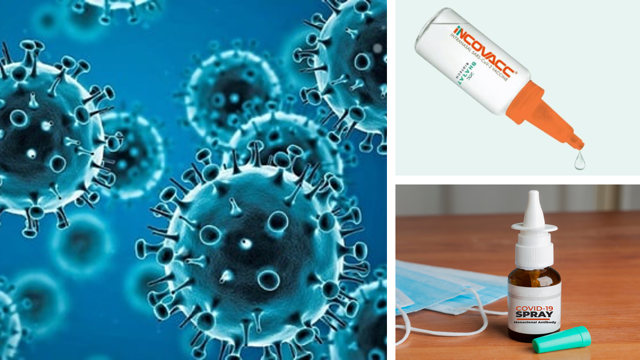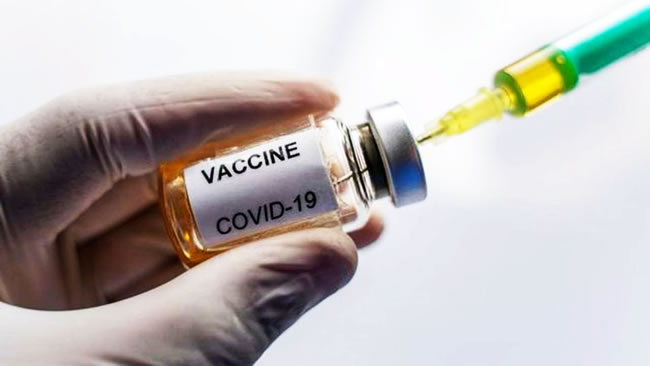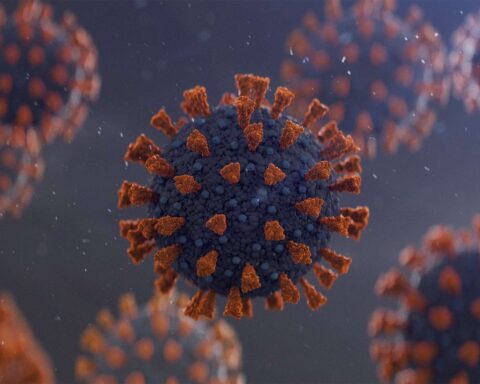It has been a while since we talked about coronavirus (SARS-CoV-2). Familiarity as we all know, brings contempt, suffice it to say that COVID-19 is no longer the dreaded disease it was between 2020 and 2021. The advent of vaccines and better disease management have contributed to slow if not check the virus. Nevertheless, the virus has not gone away but is still rampaging. The virus has continued to mutate into many variants but so too, are improved vaccines developed to keep up with the virus. The current statistics as of Friday 9 September 2022, is 607 million confirmed infections worldwide with 6.51 million deaths.
The primary routes of entrance by the virus into the body include the nose and mouth. Therefore, the aim of developing mucosal vaccines is to prime the immune cells in the mucous membranes lining the cavities of these primary routes, including the lungs, against coronavirus and in the process, eradicate the virus before it could pass into the body and cause disease. This also means that transmission from infected individuals to other people could be blocked.
By preventing the SARS-CoV-2 from achieving infection, a sterilising immunity is established. This is not the case with conventional vaccines. A vaccine is said to provide a sterilising immunity if it completely prevents a disease-causing pathogen like coronavirus (SARS-CoV-2) from establishing an infection. The conventional vaccines like AstraZeneca and Moderna offer effective immunity by preventing COVID-19 illness, but they do not prevent asymptomatic infection. This means that even though the infected person has no symptoms, the possibility of passing the virus to others remains. Data from animal models in mice and monkeys did show that mucosal vaccines offer sterilising immunity, but very few human data exist to validate this.
READ ALSO: New Cancer Vaccines Raise Hope
But what really is the advantage/s of the mucosal vaccines over the conventional COVID-19 vaccines?
The conventional vaccines upon intramuscular injection give rise to two immunological responses: cellular and humoral. In the cellular response, T-cells are activated to destroy the intruder, while the humoral response activates the B-cells to produce antibodies, which neutralise the intruder. The T- and B-cells actions occur mostly in the bloodstream and are found in limited levels in the nose and lungs to offer a robust and fast protection. Thus, by the time these immune responses arrive at the site of entrance, the virus has already multiplied and spread.
But mucosal vaccines initiate both whole-body immune responses as conventional vaccines, as well as localised immunity by activating the immune cells in the mucosal lining of the nose and the respiratory tract to function as “guardians” at the site of infection. These localised mucosal immunities consist of tissue-resident memory T-and B-cells and are subsets of memory cells that are maintained at barrier surfaces of tissues without recirculating, ready to be rapidly deployed against an intruder and in the process protect the resident tissue. They produce a humoral antibody called secretory immunoglobulin A (IgA) imbedded inside the respiratory tract, and act to quickly destroy intruders.
Needle-free COVID-19 mucosal vaccines have been approved for use in Iran and Russia, and last Sunday 5 September 2022, China approved an inhaled COVID-19 vaccine called Convidecia Air. This mucosal COVID-19 vaccine is delivered with the aid of a nebuliser, which vaporises the liquid into an aerosol for inhalation through the mouth. The vaccine is said to induce a “comprehensive” immunity against SARS-CoV-2 after “just one breath”. And following closely was India’s approval on Tuesday of another COVID-19 mucosal vaccine called iNCOVACC. India’s iNCOVACC is meant for use as two-dose primary inoculation, rather than a booster.
Meanwhile, some mucosal vaccines have been approved for other viral diseases, including the polio and influenza viruses. LloydsPharmacy was in March 2022 marketing an antiviral nasal spray called Viraleze (astodrimer sodium) from Starpharma. The product was claimed to be active against multiple strains of SARS-CoV-2, and other viruses including influenza, RSV (Respiratory syncytial virus), SARS (Severe acute respiratory syndrome), and MERS (Middle East respiratory syndrome). The nasal spray it was claimed, can be used before or after exposure to the virus, and works by targeting the nasal cavity, which is one of the primary routes of entrance to the body by coronavirus. However, there were serious doubts about the claims and the product was withdrawn from the market by LloydsPharmacy in June. The veracity of other similar products sold online including Taffix and ViroStop was also called into question. These products were being marketed based on tests that did not include human subjects and similarly, these products have now been withdrawn from the UK market.
It must be stressed here that currently, there are only 4 “nationally” approved COVID-19 mucosal vaccines in use in the world. These vaccines are the ones produced in Iran, Russia, China, and India. However, there are hundreds of others in various stages of clinical trials, which are expected to hit the market soon, including the one being developed by AstraZeneca in collaboration with the University of Oxford, UK.
Mucosal vaccines come in different formats. Some are packaged into aerosols and inhaled through the mouth with a nebuliser, others are squirted as liquids or droplets up the nose; yet others are swallowed as pills. The mucosal vaccines can serve as a booster dose for those who already have had their COVID-19 jabs or as first doses for unvaccinated people.
In general, conventional (or intramuscular) vaccines prevent hospitalisation by targeting and destroying the virus after infection while mucosal vaccines prevent infection by acting to deny the virus entrance into the body. And if mucosal vaccines truly offer sterilising immunity, then the days of coronavirus (SARS-CoV-2) are numbered and with it, the dreaded reputation of its disease state, COVID-19, will be consigned to history.
For those of us afraid of needles, mucosal vaccines will be a welcome substitution to intramuscular vaccines.















